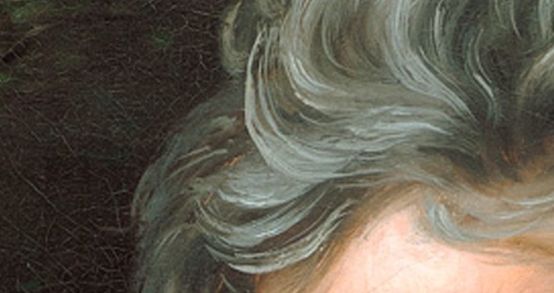Praise for the fat Schuppanzigh
Beethoven every Friday: to mark his 250th birthday, we take a look at one of his works every week. Today we look at the musical joke "Lob auf den dicken Schuppanzigh" for three solo voices and choir.

It is not always the great works of music history that tell of interpersonal relationships. Simple canons or impromptu musical sayings often provide an insight into the environment and everyday circumstances - although they are generally counted among the "chaff" of a composer's oeuvre. This is also the case with Beethoven. Sometimes it is about the tiresome relationship (Fettlümmel, Bankert have triumpheda three-part canon on the sister-in-law and her daughter, WoO 226), then the question of where to dine: Gentlemen where will you dine today in the ochsen or schwanen or zu den drei hacken or even in the fischrüherl (WoO 221, 1st text version). The departure of Johann Nepomuk Hummel for Stuttgart is more serious (Ars longa, vita brevisWoO 170), the Danish composer Friedrich Kuhlau's artful entry in one of the conversation booklets was subtly answered with a B-A-C-H motif (Cool, not lukewarmWoO 191).
Ignaz Schuppanzigh (1776-1830), who composed almost all of Beethoven's string quartets with his ensemble, was the recipient of such musical short messages on two occasions. And both times the text is aimed at the violinist's corpulent appearance. Beethoven, who had already nicknamed him "My Lord Falstaff", calls him in 1801 in coarse, friendly jest Praise for the fat Schuppanzigh WoO 100 even a "Lump"one "thick mule" and "inflated donkey head". It sounds somewhat milder when Schuppanzigh returns from St. Petersburg in April 1823 and begins the canon Falstafferl, let's see you WoO 184 (here the rapidly repeated and sustained notes imitate a violin). Even though Beethoven was repeatedly inspired by Schuppanzigh and his quartet comrades and, with their help, was apparently also able to try out preliminary versions in private, the artistic friendship had to endure a lot - including the famously botched premiere of the String Quartet in E flat major op. 127. However, what Schuppanzigh achieved musically has been handed down by his secundarius Karl Holz, who reported to Beethoven: "My Lord played better today than ever before - passages like the recitative from op. 132 no one can play like that. - He has what no one else can learn; he has learned nothing else."
Listen in!







